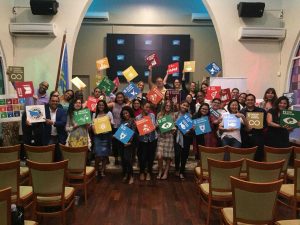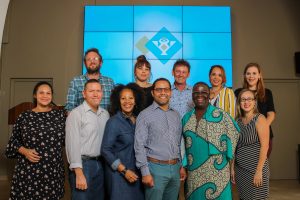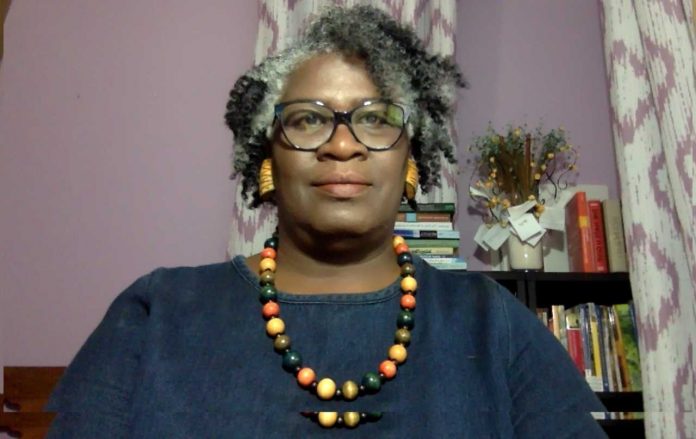World Social Work day 2021 has chosen ‘Ubuntu: Strengthening Social Solidarity and Global Connectedness’ as the theme this year, 2021. The word Ubuntu originates from Africa, and it means ‘I am because you are. You are because I am. We are nothing without each other’. This theme resonates with me as it reflects my passion for social work that comes from a space of wanting to live in a world of equality, compassion, healing, and happiness. Thus, I have chosen as my life’s purpose to empower everyone who crosses my path with any vulnerability to find the strength within themselves to flourish, enjoy a good quality of life and wellbeing.
I am fascinated by the chosen theme because global social work has embraced an African philosophy, Ubuntu. Africa has been engaging in the process of decolonizing social work practice and integrating African concepts and approaches that fill the gaps left behind by western approaches (Mugumbate & Chereni, 2020). Ubuntu is one such concept. It refers to “a collection of values and practices that black people of Africa, or African origin view as making people authentic human beings…It recognizes that an authentic individual human being is part of a larger and more significant relational, communal, societal, environmental and spiritual world” (Mugumbate & Chereni, 2020, p. 4).
The virtues that embody the concept Ubuntu also exist in Caribbean cultures. In Aruba for example, the traditional custom of ‘Paga Lomba’ bears a similar notion of mutual support or reciprocal exchange within the community. In 2001, cultural anthropologist, Dr. Luc Alofs and Leontine Merkies, wrote, “The term “Paga Lomba” can best be translated as “pay back” and is derived from the Paga Lomba system in agriculture. Relatives and often with outside assistance agree to work on a plot of land, or to reap the harvest based on the reciprocal exchange of labour” (p. 38).
Aruba Doet, which started in 2013 as an initiative of Oranje Fonds and is managed by CEDE Aruba, is an excellent example of Ubuntu and Paga Lomba in action. Aruba Doet encourages everyone to roll up their sleeves to volunteer in a myriad of community projects. In 2020, 170 social organizations completed 191 projects with the support of more than 2000 volunteers. In St. Lucia, my country of origin, there is a similar concept, ‘Koudmen,’ which is translated to mean ‘helping hand’ in the French Creole language. It is applied when all members of a community of all ages converge to implement a project, such as the construction or refurbishment of a house, the construction of a footpath, or planting or harvesting agricultural produce. These helping hand activities are done with the commitment of reciprocity, where the favours will be returned for another person or community. They are implemented with the value of social cohesiveness and a recognition of the power of interrelationships, much like the idea of Paga Lomba is manifested in the case of Aruba Doet.
The COVID-19 pandemic is a vivid illustration of all human beings’ interrelatedness and Ubuntu, Koudmen, and Paga Lomba in action across the world. The pandemic radically and overnight changed our lives and livelihood, plunging those already vulnerable into further desperation and poverty. According to the International Labour Organization (ILO), over 34 million jobs were lost by COVID-19 in Latin America and the Caribbean as labor income declined by 19.3%. In Aruba, the situation was similar, where according to the Caribbean COVID-19 Food Security and Livelihoods Impact Survey, 80% of Aruban households experienced job loss or reduced salaries. The individual, local and global responses have been an outpouring of support to provide social protection packages with financial relief to rebuild households’ income security and provide for families’ wellbeing.
The response to COVID-19 in Aruba was led by many, but the pioneering relief initiative ‘Happy to Give Back’ of CEDE Aruba, under the leadership of Daniel Tecklenborg, a Social Worker, deserves special mention. This initiative encouraged online donations for immediate support to the local food banks and the most vulnerable in the Aruban community. The implementation of this initiative was made possible by Social Workers, Gabriel Marchena and Lisa Harris from Fundacion pa nos Comunidad. The Aruba Red Cross also expanded its services during COVID-19 under the leadership of Social Worker, Tracey Werleman, an alumna from the University of Aruba who serves as the Social Coordinator for the programs. We salute the following Social Workers who worked collaboratively with Tracey: Mariana da Silva, Maria Jose Catalan, Janesis Cano and Jo Anne Kock. We are proud of the 13 social work interns from the University of Aruba who collectively volunteered at the Aruba Red Cross and at the Fundacion pa nos Comunidad. These initiatives represent the ethics, values, and principles of Ubuntu: a model of social work practice characterized by inspiring economic progress, social justice, distribution of resources, respect, empowerment, reciprocity and sharing, teamwork, collaboration, and social harmony (Mugumbate & Chereni, 2020). Additionally, these initiatives demonstrate the vital role of social workers in preventing vulnerability, contributing to national development and building compassionate communities of care in the process.
It is my view that the philosophy of Ubuntu is compatible with developmental thinking. After all, what is the end goal of supporting those in need, if not for human flourishing, and to promote their health and wellbeing. Ubuntu, Paga Lomba, and Koudmen have one intrinsic value in common; the issue of relationality, i.e., recognizing the power of pursuing communal relationships with others in the quest for human development. Where human development is understood to be the process of enlarging a person’s choices by giving them the freedom and opportunities to lead long, healthy, and flourishing lives; to be knowledgeable; to have access to resources needed for a decent standard of living; to be able to participate in the life of the community and the upholding of equality amongst all human beings (Human Development Report, 1990; Sen, 1999). Thus, as social workers, we are always called to work in collaboration with others and recognize the central importance of human relationships and, at all times to achieve the goals participants have set for themselves. Ubuntu, Paga Lomba and Koudmen, all provide the indigenous theoretical grounding of our work, and a new way to appreciate the ethical significance of our social work practice.
Thus, as we celebrate World Social Day, we herald the contributions of all social workers in Aruba, the Caribbean, and worldwide. Let us continue our resolve to promote and work within the philosophy of Ubuntu, Paga Lomba, and Koudmen and aspire to become, “a Social Worker who recognizes and promotes Ubuntu (Paga Lomba, and Koudmen) knows that inherent in each person is dignity and value, and that each person deserves respect and that a person exists within a cultural setting and a community and that the individual and community shape, influence and benefit from each other” (Mugumbate & Chereni, 2020, p. 8).
The clarion call is to integrate the usage of Ubuntu, Paga Lomba, and Koudmen in our social work day-to-day terminologies and practice. Meanwhile, the implication for social work education in Aruba is to take a page from African Social Workers, and conduct additional research to document Paga Lomba experiences towards theorizing this concept as an indigenous social work practice model.
For more information: http://www.ua.aw/.






















